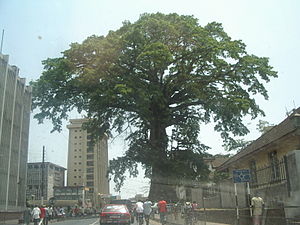
Executive Summary
The constitution and other laws and policies protect religious freedom and, in practice, the government generally respected religious freedom. The government did not demonstrate a trend toward either improvement or deterioration in respect for and protection of the right to religious freedom.
There were no reports of societal abuse or discrimination based on religious affiliation, belief, or practice.
Section I. Religious Demography
The most prominent religious civil society organization, the Inter-Religious Council (IRC), which is composed of Christian and Muslim leaders, estimated that 77 percent of the population is Muslim and 21 percent Christian. Groups that constitute less than 2 percent of the population include Baha’is, Hindus, Jews, and practitioners of indigenous and other religious beliefs, mostly animist. Most Muslims are Sunni. Evangelical Christians are a growing minority, with conversions primarily by members of other Christian denominations. Many citizens practiced a mixture of Islam or Christianity with indigenous religious beliefs.
Historically most Muslims have been concentrated in the north and east with Christians in the south and west; however, the 11-year civil war, which officially ended in 2002, resulted in movement between regions by large segments of the population.
Section II. Status of Government Respect for Religious Freedom
Legal/Policy Framework
The constitution and other laws and policies protect religious freedom.
Chapter III, Section 24, of the 1991 constitution guarantees all citizens the freedom to observe their own religious practices or to change religions without interference from the government or members of other religious groups. In addition, instruction in a specific religion is permissible only in schools organized by the religious community or denomination.
The Ministry of Social Welfare, Gender, and Children’s Affairs is the government body responsible for religious matters but has no mandate to recognize, register, or otherwise regulate religious groups. Religious groups that seek public recognition by the ministry are required to complete a form. In practice, most churches and mosques registered with the government as well as with an independent religious organization, such as the Council of Churches of Sierra Leone, the Evangelical Fellowship of Sierra Leone (which represents many evangelical churches and denominations), or the United Council of Imams (which has registered 2,350 mosques).
The government permits religious instruction in all schools. The government requires a standard Religion and Morals Education (RME) curriculum in all public schools through high school, which is to cover Christianity, Islam, and other religions. Private schools are not required to use RME, although many Christian schools do; Muslim schools generally do not use RME, which they believe provides insufficient coverage of Islam.
The government observes the following religious holidays as national holidays: the Birth of the Prophet Muhammad, Good Friday, Easter Monday, Eid al-Fitr, Eid al-Adha, and Christmas.
Government Practices
There were no reports of abuses of religious freedom, and the government upheld constitutional protections for religious freedom.
During the year, the government organized all preparations for the Hajj via a committee led by the vice president (who is a Muslim). The government’s committee also included many members of the 2010 nongovernmental Hajj Committee, which was comprised of 27 representatives from nine Muslim organizations.
Section III. Status of Societal Respect for Religious Freedom
There were no reports of societal abuses or discrimination based on religious affiliation, belief, or practice, and prominent societal leaders took positive steps to promote religious freedom.
The IRC worked in tandem with the Council of Churches of Sierra Leone, the Evangelical Fellowship of Sierra Leone, and the United Council of Imams. These groups, funded by member contributions and donations from nongovernmental organizations, helped maintain harmony between Christians and Muslims, expressed support for peace and good governance, and provided development assistance and disaster relief without regard to religious affiliation.
Religion did not play a role in either ethnic identity or political affiliation, and candidates for president have generally chosen a running mate of a different religion, although there was no requirement to do so.
During the year there were few major complaints regarding the Hajj; however, committee members publicly expressed their preference for the 2010 arrangement in which they were solely responsible for travel logistics and escorting pilgrims.
Intermarriage among Christians and Muslims was common, and many families had both Christian and Muslim members living in the same household. Most citizens celebrated all religious holidays, regardless of sect or denomination, both at home and in houses of worship.